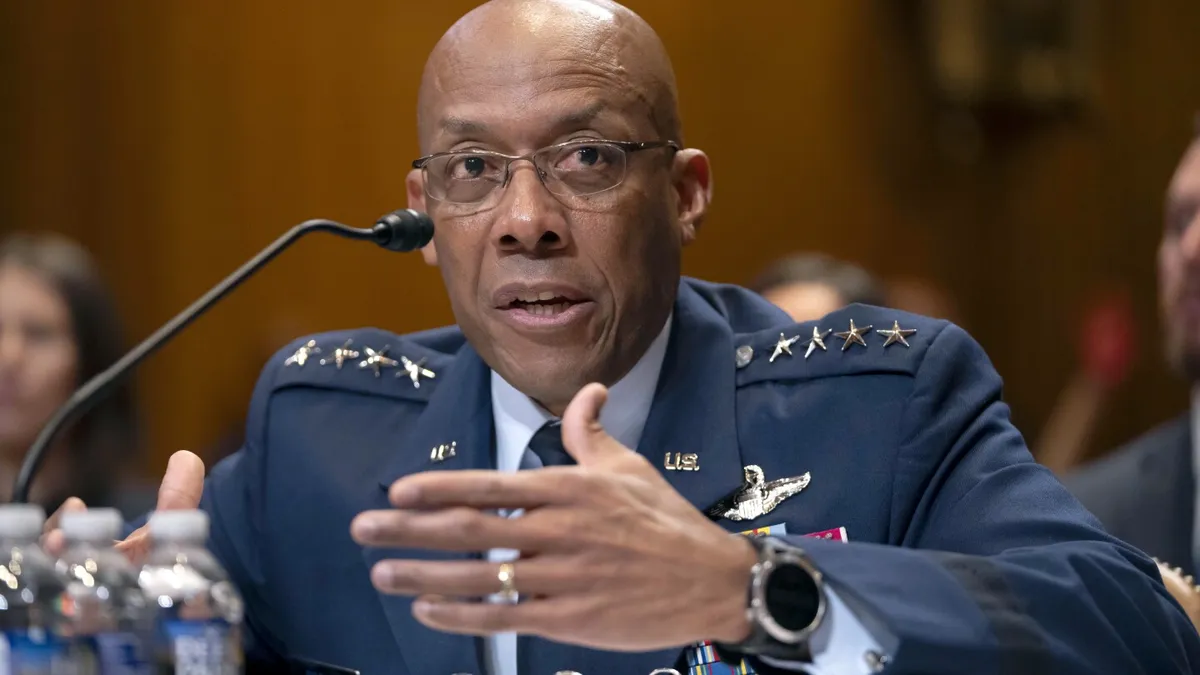
Five former secretaries of defense are urging Congress to conduct immediate hearings regarding President Donald Trump’s recent dismissals of key military leaders, including the chairman of the Joint Chiefs of Staff. This plea comes from a letter obtained by The Associated Press, highlighting the growing concerns over the political implications of these firings.
The letter, signed by distinguished defense leaders from both Republican and Democratic administrations over the last thirty years, expresses alarm over the firings. The signatories—including William Perry, Leon Panetta, Chuck Hagel, Jim Mattis, and Lloyd Austin—contend that these actions raise “troubling questions about the administration’s desire to politicize the military” and effectively remove legal constraints on presidential authority.
Last week, President Trump dismissed Air Force Gen. CQ Brown Jr. from his role as chairman of the Joint Chiefs, subsequently followed by the firings of Adm. Lisa Franchetti, chief of naval operations; Gen. Jim Slife, vice chief of the Air Force; and the judge advocates general from various military branches. Defense Secretary Pete Hegseth has defended these actions, asserting that presidential changes in military personnel are not unprecedented and that Trump has the right to form his own leadership team.
Despite Hegseth's defense, the letter argues that there were no valid justifications for the dismissals since several of the ousted leaders had previously been nominated by Trump himself for various positions. The letter notes that these individuals possess exemplary careers, marked by significant operational and combat experience.
The former secretaries of defense emphasize that many Americans, including military personnel, are left with the impression that these leaders were removed for purely partisan reasons. “We’re not asking members of Congress to do us a favor; we’re asking them to do their jobs,” the letter states, calling for a thorough investigation into the firings.
As the situation unfolds, the former officials urge senators to postpone any confirmations of new Pentagon appointments, specifically mentioning retired Lt. Gen. Dan Caine, whom Trump has proposed as the next chairman of the Joint Chiefs. Caine, while respected within military circles, faces challenges regarding his legal eligibility for the position, which requires prior experience as a combatant commander or service chief—requirements that the president can waive.
Historically, the chairman of the Joint Chiefs of Staff is expected to serve a four-year term, and Gen. Brown had been in office for just under 17 months at the time of his firing. The letter asserts that both the House and Senate should demand a comprehensive justification for each dismissal, particularly given that prior firings of senior military officers in recent decades were typically accompanied by clear explanations, often related to military conduct or public statements.
In summary, the collective voices of these five former secretaries of defense signal a critical moment in the intersection of military leadership and political influence, prompting a necessary discourse on the implications of such firings on national security and the integrity of military operations.